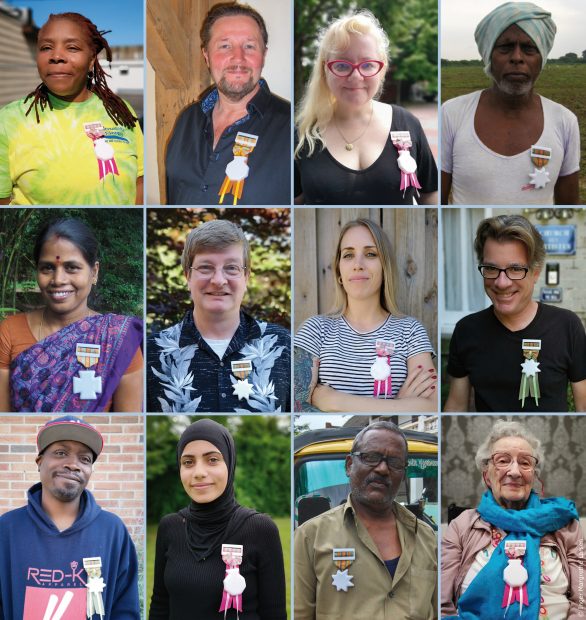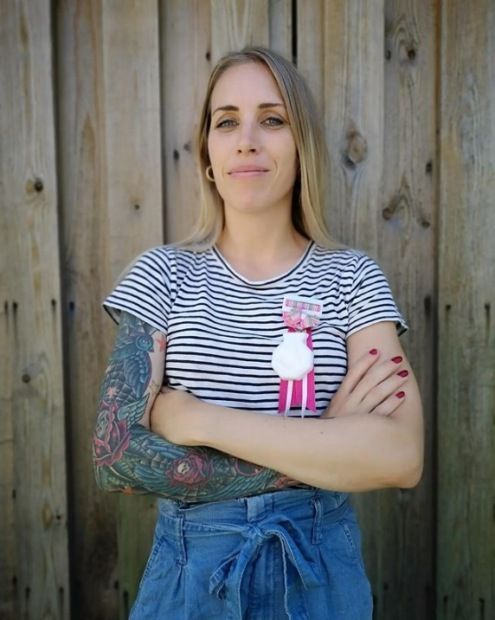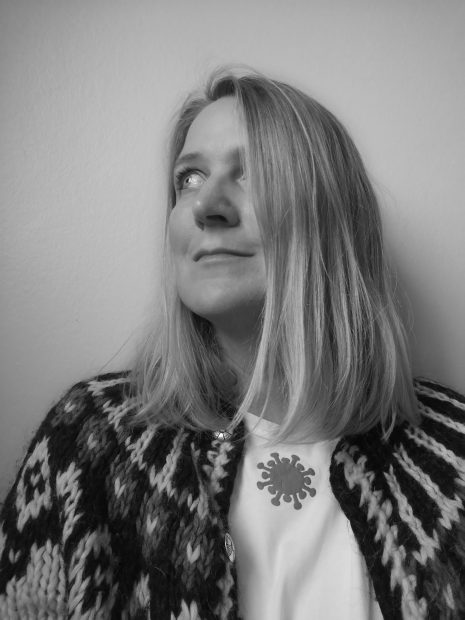News
Medals with meaning: restoring their reputation after the horrors of Medallion Man, rappers and ‘Jim’ll fix it’
This article is more than 3 years old.
Inger Margrethe Larsen is leading the crusade with ‘Medals for everyday heroes’, an art project shortlisted by the Danish Design Awards

She has awarded medals in Denmark, the US and India (all photos: Inger Margrethe Larsen)
In the early to mid-20th century, military men wore their medals with pride. Victoria and iron crosses, legions of honour and purple hearts – back when they really stood for something.
In the 1970s, along came the ‘Medallion man’. The substance was gone, the shirt open and chest exposed: a quick way to a woman’s heart, apparently.
The 1980s gave us rappers. The prison doors were shut and selling their jewellery was a handy way to raise bail. The less said about ‘Jim’ll fix it’ medals the better!
Today, middle-aged men in Europe are bedecked in medals they couldn’t have possibly won during WWII. They open doors, apparently.
But outside the Olympics, could the reputation of the medal be any more trashed?

On a crusade to rethink medals
Well, setting out to restore their good name is Inger Margrethe Larsen, a designer shortlisted for this year’s Danish Design Awards in the category ‘Towards Utopia’, which “honours critical thinkers whose philosophies and ideas will act as an inspiration”.
She’s been recognised for the social engagement of her inspiring art project ‘Medals for everyday heroes’, which “seeks to acknowledge and appreciate the everyday acts of ordinary people regardless of their age, sex or merit”.
So far she’s handed out 100 medals to everyday heroes, not only in Denmark, but in countries as far-flung as the US and India – “ordinary people who live simple lives and show acts of bravery, courage, and compassion towards themselves and others who ought to be rewarded with a medal”.
Their snapshots and personal stories together make a compelling art project that has been exhibited publicly three times already and, certainly, the Danish Design Awards jury has taken notice.
“This social design ponders on the concept of medals. Everyone has something to be proud of, and this project highlights the importance of exactly this,” it enthuses.
“It brings out stories about people we may take for granted but should not be forgotten or unappreciated. This fascinating social design is more important than ever, reminding us that we must treat ourselves and other people with more dignity.”

Recognising the unsung heroes
Larsen is driven by a philosophy that the awarding of medals should be about recognising authenticity with value and dignity, rather than applauding perfection.
“Awarding people for special achievements and merits with a medal has been around for centuries,” she notes. “But who gets medals and for what achievement is typically organised by archaic institutions and normally reproduces static social structures and institutions.”
Larsen contends it is time to rethink heroism: “Who are the real heroes who deserve a medal and how can we learn from everyday heroes?”
She wants to recognise people who would not be typical medal recipients, but “make a difference by showing acts of bravery, courage and compassion towards themselves and the world around them”.
“By reflecting human nature in all its aspects of life across countries and cultures, the essence of humanity gets revealed in a beautiful manifestation and allows us the choice to come closer to one another,” she concludes.
The Danish Design Awards will have its final say on June 9.











































